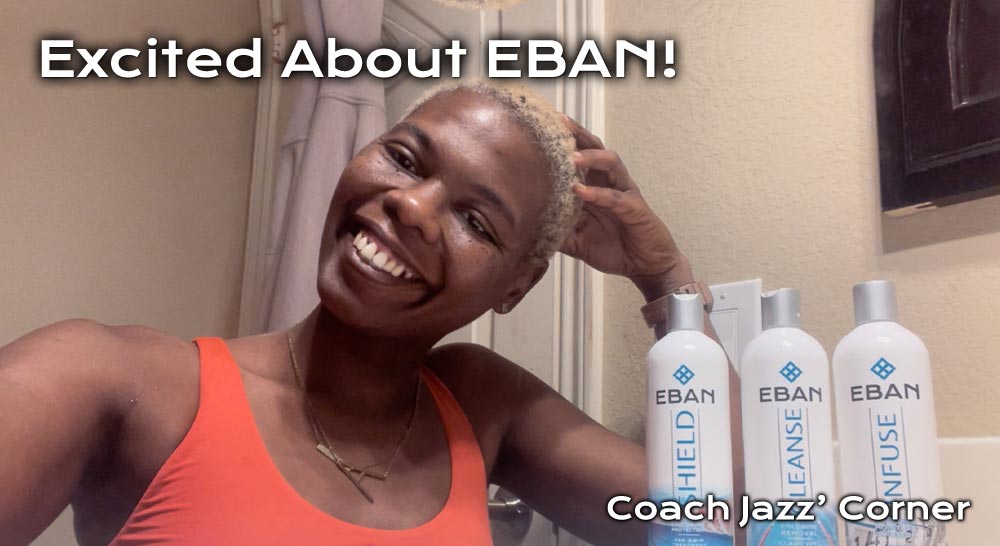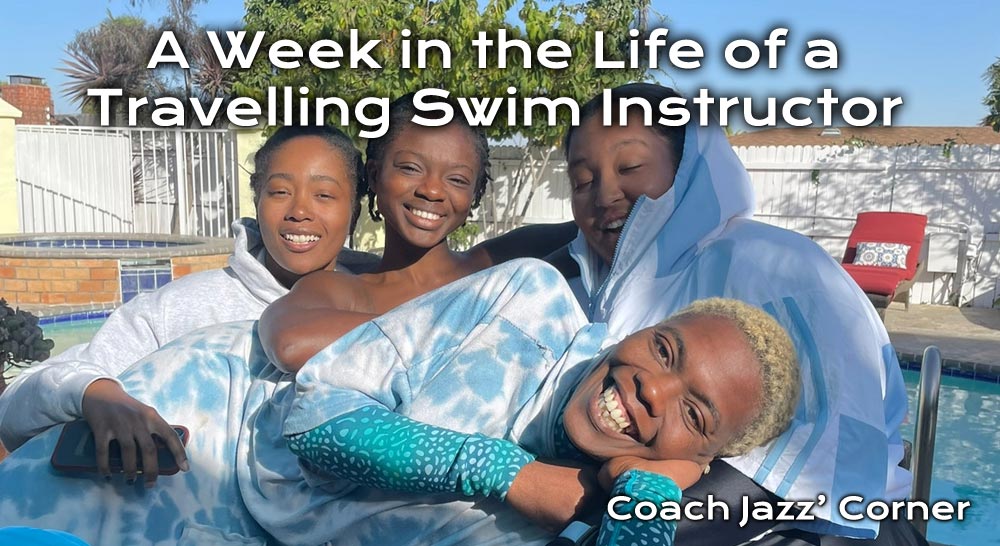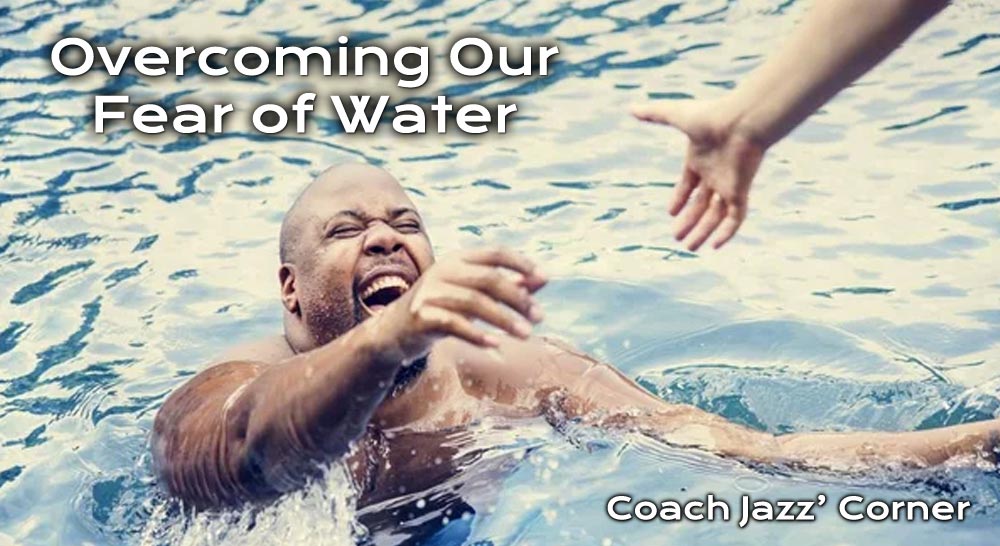
Naji Ali, a Black Open Water Swimmer
Learning to swim at the age of 43 sounds uncommon for most people, but it was better late than never for open water swimmer, Naji Ali.
“I was determined that I wanted to swim,” Ali said. “I didn’t care what it would take. I was going to do it.”
The open water swimmer and coach has made it his mission to create an environment where access to swimming is the norm, not a barrier. The main factor that drives Ali, however, is fighting for Black swimming inclusion.
“Black folks will learn something a lot more if they saw someone like them,” he said.
While Black swimmers’ have risen to prominence, participation in the sport remains low for many.
Incidents of de facto segregation in specific communities continue to impact African Americans’ access to swimming pools.
According to Ali, rhetorical statements from established institutions and figures in aquatics about diversity do little to change the swimming world’s makeup if there isn’t accountability and action.
“They’re talking about, ‘well, we want more Black folks, and I’m like I don’t see that,” Ali reflected. “It ain’t our responsibility to clean up for you. Y’all need to go ahead and admit the things that y’all have done.”
Childhood Experience
These sentiments had resonated with Ali since childhood when introduced to the intricacies of large bodies of water. He received his first job working with marine biologists in Hoya, CA, a suburb of San Diego, through a youth program. Reluctant at first, his mother convinced him to stick it out.
“My mom said you better take that job – you’re 13 years old, so you better get to work now” Naji Ali reminisced. “So, I went out there, and I was working.”

Amazed by the beautiful ocean views, Ali grew to appreciate the impact of marine life. While catching tuna with his team, one of his crew members jumped in the water to secure more. That moment was the first time he witnessed someone do a freestyle and backstroke.
Intrigued, Ali asked him if he would teach him this technique. To his surprise, the man chuckled and nonchalantly told Ali, “Aw kid, black people don’t swim.”
The responses from the rest of the crew left him perplexed.
“Everybody on the boat laughed and even I was laughing because, you know, you’re a kid,” Ali remembered. “You don’t want to seem like you’re getting teased or stuff like that.”
Naji Ali’s Life As An Adult Swimmer
Decades passed until Naji Ali reconsidered his interest in swimming. In 2008, he watched the U.S. Swim team win the gold medal in the 4 x 100-meter freestyle relay at the Summer Olympics. One of the people who made it possible was Cullen Jones, the first Black American to hold a world record. After years of procrastination, Ali knew this was the opportunity to accomplish his goal of learning how to swim. “If not now, when?” he thought.
While looking into several swimming programs, Ali decided to try Total Immersion (TI). A technique created by swim coach Terry Laughlin. It primarily focuses on three methods: balance, streamlining and propulsion. It has an emphasis on form rather than speed. It is also an efficient way of teaching swimmers to move comfortably through the water.
After reading Laughlin’s first book on TI, Total Immersion: The Revolutionary Way to Swim Better, Faster and Easier, Naji Ali convinced himself to go for it. Fortunately for him, he did not have as many issues finding swimming lessons this time around. As luck would have it, Laughlin’s daughter, Fiona, taught him how swim after the two friends coincidentally attended a workshop hosted at San Francisco State University. And in Ali’s words, “I’ve been swimming ever since.”

“In the open water, I believe you can never have the same swim twice,” Ali expressed. “It’s constantly different. Well, for me, I love that variety.”
Famous Open Water Swimmers
Although their stories are not frequently shared, there are many Black open water swimmers. Pauline Jackson broke barriers in the early 20th century. As an open water swimmer, she is known for her skilled swimming and fundraising prowess. She established a career in marathon swimming in the 1920s. She was a marathon swimmer who attempted to swim The Catalina Channel in 1927. It is one of the seven most challenging swimming marathon globally.
Almost 60 years later, Charles Chapman became the first Black swimmer to cross the English Channel in 1981. Also known as “Charlie the Tuna,” the distance swimmer achieved another first as the first Black person to complete the Manhattan Island Marathon Swim in 1988 with a time of 9:25:08 seconds.
The Gorée Project
These accomplishments are outstanding, but the narrative regarding Black people’s connection to swimming stays the same. One way to combat this discrepancy is to acknowledge history. That’s why Naji Ali’s involvement in The Gorée Project holds a special place in his heart. Being active in open water swimming, he believes the competition is an essential step to informing ourselves and others about our swimming roots.
“The cultural aspect of this whole swim is important because Goree is one of the last stops for many Africans who before they arrived in the new world,” Ali explained. “I think it’s so important, especially for Black folks here in America, to understand our history from where we came from – and I know that we get that to a certain extent.”
The goal of the 3.5-mile swim is to incorporate the unification of Black Americans and the Senegalese people to the waters that divided them while sharing a cultural exchange through the sport during the process.
These cultural connections also lay the groundwork for social justice. Ali insists institutions like USA Swimming need to be better aware of past and present racial issues to make the swimming world a more comfortable space for Black swimmers. It also includes supporting events such as the National Black Heritage Championship Swim Meet to foster more inclusion and acceptance of Black swimmers.
Goals for the Future
“I think that one of the things that’s going to have to happen is that some of these white organizations are going to need to – start emphasizing the great programs like Black Kids Swim,” Ali said. “Giving them the autonomy and possibly financial backing without any strings attached.”
He believes swimming is an essential asset everyone should learn regardless of circumstance. For Ali, teaching kids to swim for free continues to create the same opportunity he was fortunate enough to receive when he began his training. From his perspective, what makes swimming significant is its use in several professions.
“One of the things I wanted to do to give back was to teach folks for free because I look at it as a life skill,” the open water swimmer stated. “It’s about being proficient and realizing that you have job opportunities. You can be a lifeguard, you can be a fireman and you can be with the Coast Guard. All of these different occupations and many more.”
His goal is to create a Black swim club association as a safe space for Black coaches to mentor young men and women to become skillful in the sport. He believes this will benefit the Black and swimming communities, providing a space to organize and speak on our collective issues. Though it is an uphill battle, Ali says he is up for the challenge.
“I know what I need,” Ali said. “I’ve been doing it for 55 years. Trust me; I can do it for 55 more.”






